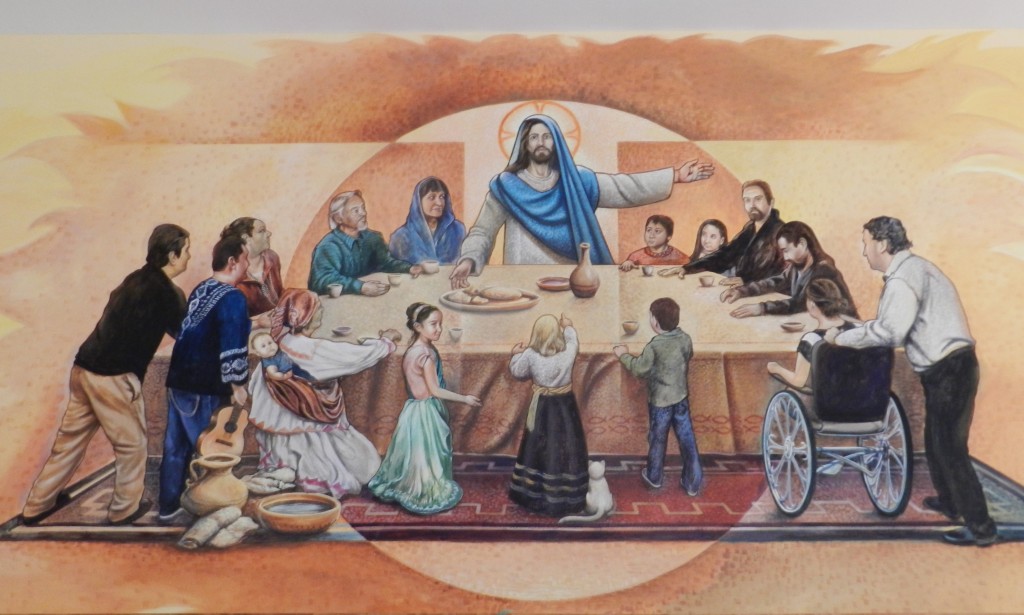|
I am writing this on February 29th, an unexpected day that catches me by surprise roughly once every four years. What isn’t a surprise is that I am also writing this at the last minute. (S. M.), the church secretary, is patiently waiting for me to finish so you can get the newsletter and be surprised by all the events we have planned for the upcoming month.
Surprisingly, I am not fond of surprises. Yet that didn’t stop (S.M.), who also patiently waited for me to leave the church every night last week, so she could surprise me with many creative ways commemorate my 50th birthday. This included, 50 candy fish floating on sticks in an empty fish tank. A roll of 50 pennies that was hidden among the clutter of my desk. Then stuck to virtually everything in my office I found 50 posted notes with quotes that were suppose to make me feel better about making to the half century mark in life. To top it off, two not so surprisingly delicious sugar cookies in the shape of the number 50! My wife and children also had a few surprises up their sleeves, including fifty individually wrapped gifts, with the last being a surprise visitor from L.A. This surprise almost killed me (and at my new age, we should not be surprised by that possibility). While I loved showing off Greenville to my friends and family, having snowball fights in the front yard, sledding down Tower Mountain, and even the snow that makes it all possible, I still don’t like surprises. We know that the month of March is full of surprises too. Not only does it start a day late, but Easter comes early. And as the snow falls outside my window I realize the weather can change at any given moment (this is Michigan after all). Thus we always need to be prepared for all sorts of surprises, whether it is with a snow shovel in one hand and a garden spade in the other hand. Jesus reminds us of the importance of being prepared; especially for the surprise that still await us. He tells his disciples, “Take heed, keep on the alert; for you do not know when the appointed time will come” (Mark 13:33). The Greek words used in this passage mean things like ‘Beware! Be alert! Be awake! Keep watch! And for goodness sake, don’t be surprised!’ The Lenten and Easter season is a time to be awoken and reflect on the power of God’s surprising love for us. But it is also a time to be alert for the return of the Lord by keeping watch over the condition of our own lives. Peter says it like this, “Therefore, beloved, while you are waiting for these things, strive to be found by him at peace, without spot or blemish" (2 Peter 3:14). God wants us to act like Christ every day, for he is the one who turns us in a different direction; commanding us to be peacemakers, caretakers, and servants to one another. Hopefully this will not come as a surprise to any of you, but if it does do not be alarmed or shocked. Lent is just one season in our life, but it allows us to hone some of these skills and begin applying them to change our everyday life so we, unlike the disciples, are not taken by surprise in a snow covered garden or by an empty grave. It is in our sitting and eating and drinking with God |
Ian MacdonaldAn ex-copywriter turned punk rock pastor and peacemaker who dedicates his life to making the world a better place for all humanity. "that they all might be one" ~John 17:21“Prius vita quam doctrina.”
~ St. Thomas Aquinas (1225–1274) * “Life is more important than doctrine.”
Archives
June 2024
|

